 ShermansGhosts ALSOBYMATTHEWCARR FortressEurope:DispatchesfromaGatedContinentBloodandFaith:ThePurgingofMuslimSpainTheInfernalMachine:AHistoryofTerrorismMyFathersHouse:InSearchofaLostPast
ShermansGhosts ALSOBYMATTHEWCARR FortressEurope:DispatchesfromaGatedContinentBloodandFaith:ThePurgingofMuslimSpainTheInfernalMachine:AHistoryofTerrorismMyFathersHouse:InSearchofaLostPast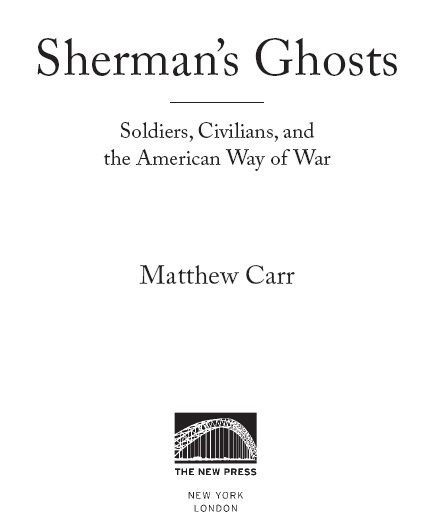 2015byMatthewCarr Allrightsreserved. Nopartofthisbookmaybereproduced,inanyform,withoutwrittenpermissionfromthepublisher. Requestsforpermissiontoreproduceselectionsfromthisbookshouldbemailedto:PermissionsDepartment,TheNew Press,120WallStreet,31stfloor,NewYork,NY10005. PublishedintheUnitedStatesbyTheNewPress,NewYork,2015 DistributedbyPerseusDistribution ISBN978-1-62097-078-2(e-book) CIPdataavailable. TheNewPresspublishesbooksthatpromoteandenrichpublicdiscussionandunderstandingoftheissuesvitaltoour democracyandtoamoreequitableworld.Thesebooksaremadepossiblebytheenthusiasmofourreaders;thesupport ofacommittedgroupofdonors,largeandsmall;thecollaborationofourmanypartnersintheindependentmediaand thenot-for-profitsector;booksellers,whooftenhand-sellNewPressbooks;librarians;andaboveallbyourauthors. www.thenewpress.com CompositionbyWestchesterBookCompositionThisbookwassetinAdobeCaslonPro PrintedintheUnitedStatesofAmerica ForGrahamUsher,19582013 Torealizewhatwaris,onemustfollowourtracks.
2015byMatthewCarr Allrightsreserved. Nopartofthisbookmaybereproduced,inanyform,withoutwrittenpermissionfromthepublisher. Requestsforpermissiontoreproduceselectionsfromthisbookshouldbemailedto:PermissionsDepartment,TheNew Press,120WallStreet,31stfloor,NewYork,NY10005. PublishedintheUnitedStatesbyTheNewPress,NewYork,2015 DistributedbyPerseusDistribution ISBN978-1-62097-078-2(e-book) CIPdataavailable. TheNewPresspublishesbooksthatpromoteandenrichpublicdiscussionandunderstandingoftheissuesvitaltoour democracyandtoamoreequitableworld.Thesebooksaremadepossiblebytheenthusiasmofourreaders;thesupport ofacommittedgroupofdonors,largeandsmall;thecollaborationofourmanypartnersintheindependentmediaand thenot-for-profitsector;booksellers,whooftenhand-sellNewPressbooks;librarians;andaboveallbyourauthors. www.thenewpress.com CompositionbyWestchesterBookCompositionThisbookwassetinAdobeCaslonPro PrintedintheUnitedStatesofAmerica ForGrahamUsher,19582013 Torealizewhatwaris,onemustfollowourtracks.
WILLIAMTECUMSEHSHERMAN,1864 Contents Introduction:FromGeorgiatoFM3-24 PartI:TheMarch PartII:Legacies Epilogue Notes Index ShermansGhosts On November 15, 1864, one of the most celebrated and controversial campaigns of the American Civil War began when sixty thousand Federal troops under the command of General William Tecumseh Sherman marched out of the burning city of Atlanta into central Georgia. Disregarding conventional military wisdom that an advancing army shouldnotbreakcontactwithitslineofcommunicationsandsupply,Shermanhadordered his troops to evacuate the city they had only recently captured and sever the Western & Atlantic Railroad link that connected them to the Unions nearest supply depot at Chattanooga,Tennessee.Apartfromthereducedprovisionshissoldierscarriedwiththem, Shermans army was now dependent for its survival on what they could take from the localpopulationinthehostileConfederateheartlandsoftheDeepSouth. Shermansdestination,thoughfewofhissoldiersrealizeditatthetime,wasthecityof Savannah, three hundred miles away on the Atlantic coast, where he hoped to be resuppliedbytheUnionNavyandthenproceednorthwardintoVirginiatoassisthisgreat friendUlyssesGrant,whosearmieswerelockedinabrutaldeadlockwithRobertE.Lees Army of Northern Virginia at the Confederate capital, Richmond. But Sherman also had very specific strategic intentions regarding Georgia itself. For more than a month, ShermansarmymarchedthroughthestateknownasthegranaryoftheSouth,seizingor destroying vast quantities of food and provisions, demolishing and burning public and privateproperty,andleavingatrailofdevastationfiftytosixtymileswide.OnDecember 21, Shermans army captured Savannah in a triumphant conclusion to the March to the Sea. In February the following year, Sherman led his army northward into South Carolina.
Herethedestructionwasmoreextensiveandmoreexplicitlypunitive,ashissoldiers burnedandlootedtheirwaythroughthestatethattheyregardedasthespiritualhomeof secessionbeforemovingontoNorthCarolina,wherethemarchfinallycametoahaltin GoldsboroonMarch23,1865.OnApril16,theConfederategeneralJosephE.Johnston surrenderedninetythousandtroopstoShermanattheBennettFarmnearthestatecapital, Raleigh,thusremovingthelastmajorConfederatearmyfromtheCivilWar.Bythattime Shermans seven-hundred-mile rampage had already begun its transformation into a militarylegend.IntheNorth,itwasacclaimedasastrategicmasterstrokethattransformed Sherman into a national hero. In the South, Sherman was vilified as a brutal military destroyer, a nineteenth-century Genghis Khan who violated the principles of civilized warfareandchosetomakewaronciviliansandnoncombatants. ThisimageofShermanastheGreatDestroyerhasbeenhandeddowntoposterityand reinforcedinfilms,suchas TheBirthofaNationand GonewiththeWind,aspartofthe LostCausemythologiesofSouthernvictimhood,whichpresentShermanastheiconic symbol of Yankee barbarity. Today Shermans army is still remembered throughout the South as the instrument of vengeful destruction described in the narrative voice-over spokenbyWaylonJenningsinthePaulKennerleysongTheyLaidWastetoOurLand: With hate in their hearts, they moved in a line, cutting a scar through Gods blessed countryfiftymileswide/Burning,lootingandguttingourlandlikevultures. ShermanssinisterreputationisnotconfinedtotheCivilWar.Morethananymilitary campaigninhistory,ShermansMarchhasbecomeabywordforwartimedevastationand cruelty. In the twentieth century the name of Sherman has taken on an incantatory quality; speak it, and all the demons of destruction appear, writes the cultural historian Charles Royster.
Other historians have depicted Sherman as the spiritual father of total war,thegeneralwhosecampaignsbrokewiththepoliteconventionsofnineteenth-century warfareandpavedthewayforthenewformsofmilitarybarbarismthatfollowed.Inhis history of the conduct of war, the former British general and military historian J.F.C. FullersingledoutShermanasthearchitectofthemoralretrogressioninwarfarethathe regarded as a particularly malign consequence of the American Civil War, the leading exponent of this return to barbarism, who broke away from the conventions of nineteenthcenturywarfare,andwagedwarasruthlesslyasCalvinhadwageditwiththe word. InamorerecentstudyofbattlefieldtacticsintheCivilWar,theBritishhistorian PaddyGriffithsimilarlycondemnedShermansdoctrineofwarfareagainstciviliansas oneofthemoreviciousmilitarytheoriesofmoderntimes. Shermans many admirers have taken a more positive view of the man and his achievements.Somehavepointedoutthediscrepancybetweenhisfrequentlyextremeand intemperate pronouncements and his more restrained actions. Few generals are more quotable,andfewofShermansmanyaphorismsaremorewidelyquotedthanhisfamous extemporaneousinsistencethatwarisallhell,moreoftenrenderedaswarishellan observationthathasbeenendlesslyrepeatedbypoliticiansandsoldiersasajustification for intensifying wars hellishness. Yet Shermans defenders have argued that Shermans campaignsofdevastationwerenottotalbutaproportionateandrelativelyunbloodyuse of military force that was justified on military grounds.
In a hagiographic biography writteninthe1920s,theBritishmilitarytheoristBasilHenryLiddellHarthailedSherman as the unacknowledged genius of the Civil War, whose campaigns anticipated the Nazi blitzkrieg tactics in World II and their subsequent adaptation by General George Patton duringhis1944campaignsinNormandy.ForLiddellHart,Shermanwasthefirstmodern general, whose methods presented a less destructive alternative to the meat-grinding battlesofWorldWarI. Inhisstudy TheAmericanWayofWar,RussellWeigleydescribedtheCivilWarasa transformativemomentinU.S.militaryhistory,inwhichShermansstrategyofterrorin Georgia and the Carolinas complemented Grants strategy of annihilation in Virginia. WhereasGrantsbludgeoningoffensivesinthespringof1864introducedanewstrategic concept in American warfare, the annihilation of armies, Weigley argued, the deliberate effort to undermine civilian morale through terrorization practiced by ShermanandhisfellowgeneralPhilipSheridanhadtheeffectofenlargingthespherein whichAmericansoldierssawciviliansaspossiblemilitarytargets. In a personal journey along the route of Shermans marches in 1984, the Southern writer and journalist James Reston Jr. attempted to trace a line of descent between ShermanscampaignsandtheVietnamWar.ForReston,Shermanwasthefirstgeneralof modernhumanhistorytocarrythelogicofwartoitsultimateextreme,thefirsttoscorch the earth, the first consciously to demoralize the hostile civilian population in order to subdueitshostilearmy,thefirsttowreckaneconomyinordertostarveitssoldiers. Generals who terrorize civilians and seize or destroy their property are not usually lionized for such actions.
Next page

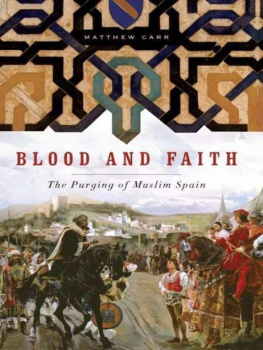
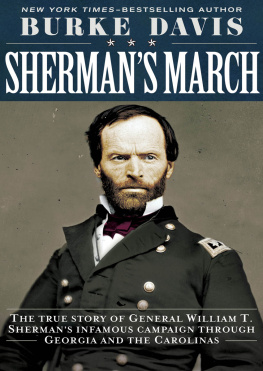
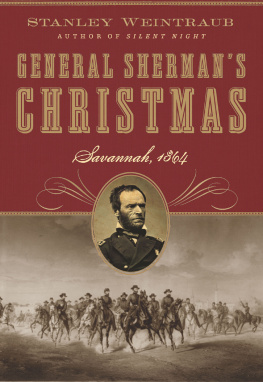
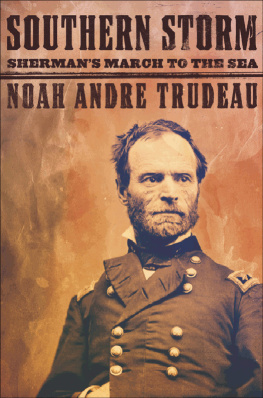
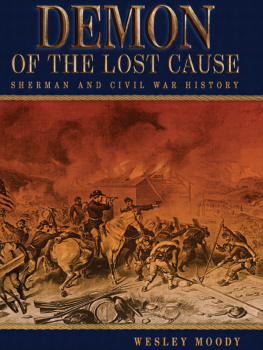
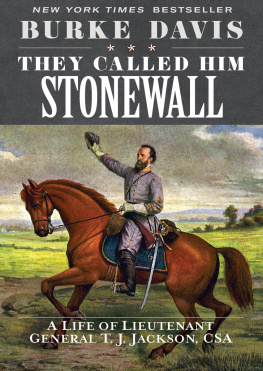
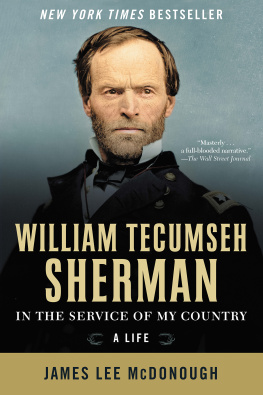
 ShermansGhosts ALSOBYMATTHEWCARR FortressEurope:DispatchesfromaGatedContinentBloodandFaith:ThePurgingofMuslimSpainTheInfernalMachine:AHistoryofTerrorismMyFathersHouse:InSearchofaLostPast
ShermansGhosts ALSOBYMATTHEWCARR FortressEurope:DispatchesfromaGatedContinentBloodandFaith:ThePurgingofMuslimSpainTheInfernalMachine:AHistoryofTerrorismMyFathersHouse:InSearchofaLostPast 2015byMatthewCarr Allrightsreserved. Nopartofthisbookmaybereproduced,inanyform,withoutwrittenpermissionfromthepublisher. Requestsforpermissiontoreproduceselectionsfromthisbookshouldbemailedto:PermissionsDepartment,TheNew Press,120WallStreet,31stfloor,NewYork,NY10005. PublishedintheUnitedStatesbyTheNewPress,NewYork,2015 DistributedbyPerseusDistribution ISBN978-1-62097-078-2(e-book) CIPdataavailable. TheNewPresspublishesbooksthatpromoteandenrichpublicdiscussionandunderstandingoftheissuesvitaltoour democracyandtoamoreequitableworld.Thesebooksaremadepossiblebytheenthusiasmofourreaders;thesupport ofacommittedgroupofdonors,largeandsmall;thecollaborationofourmanypartnersintheindependentmediaand thenot-for-profitsector;booksellers,whooftenhand-sellNewPressbooks;librarians;andaboveallbyourauthors. www.thenewpress.com CompositionbyWestchesterBookCompositionThisbookwassetinAdobeCaslonPro PrintedintheUnitedStatesofAmerica ForGrahamUsher,19582013 Torealizewhatwaris,onemustfollowourtracks.
2015byMatthewCarr Allrightsreserved. Nopartofthisbookmaybereproduced,inanyform,withoutwrittenpermissionfromthepublisher. Requestsforpermissiontoreproduceselectionsfromthisbookshouldbemailedto:PermissionsDepartment,TheNew Press,120WallStreet,31stfloor,NewYork,NY10005. PublishedintheUnitedStatesbyTheNewPress,NewYork,2015 DistributedbyPerseusDistribution ISBN978-1-62097-078-2(e-book) CIPdataavailable. TheNewPresspublishesbooksthatpromoteandenrichpublicdiscussionandunderstandingoftheissuesvitaltoour democracyandtoamoreequitableworld.Thesebooksaremadepossiblebytheenthusiasmofourreaders;thesupport ofacommittedgroupofdonors,largeandsmall;thecollaborationofourmanypartnersintheindependentmediaand thenot-for-profitsector;booksellers,whooftenhand-sellNewPressbooks;librarians;andaboveallbyourauthors. www.thenewpress.com CompositionbyWestchesterBookCompositionThisbookwassetinAdobeCaslonPro PrintedintheUnitedStatesofAmerica ForGrahamUsher,19582013 Torealizewhatwaris,onemustfollowourtracks.